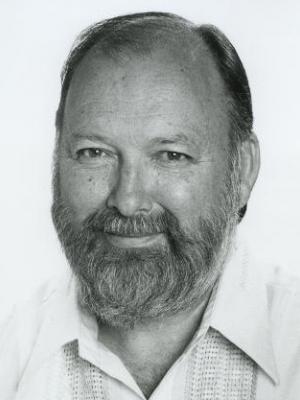Professor Nix was born in Ipswich, Queensland in 1937. He was educated in Ipswich, the Queensland Agricultural College, where hersed a Diploma in Agriculture (Q.DA.) with honours in 1956, and the University of Queensland, where he graduated in 1960 with a Bachelor of Agricultural Science (BAgr.Sc).
His most successful research career commenced in 1961 as a science writer for C.S.I.R.0.'s Agricultural Research Liaison section. In their journal "Rural Research in C.S.I.R.O.", Professor Nix presented critical reviews and syntheses of all aspects of wheat research in Australia.
From 1964 to 1972 he was with the C.S.I.R.O. Division of Land Research and Regional Survey. In a survey of the Fitzroy Region of Central Queensland, he pioneered the concept of common land units and their practical application. He also had a pioneering role in the development of simulation models of crop, pasture and forest systems which have gained national and international recognition.
During the period 1973 to 1974, he was Senior Research Scientist in the Division of Land Use Research. As the leader of this professional group, land evaluation methods based on the parallel development of environmental databases and crop models were formulated.
As Principal Research Scientist from 1975 to 1982, he was the leader of an evaluation group of 10 senior professionals who developed land evaluation methods for agriculture, horticulture, forestry and conservation of flora and fauna; as well as minimum data requirements (M.D.R.'s) for agronomic experiments which, having world wide application, created universal interest.
From 1983 to 1986 Professor Nix was the Senior Principal Research Scientist of the Division of Water and Land Resources with a staff of 26 professionals.
In 1986 he was appointed Professor and Director of the Centre for Resource and Environmental Studies (CRES) at the Australian National University, Canberra. CRES is an interdisciplinary research centre that focuses on resource and environmental policy issues of national and global significance. The Centre's central underlying theme is its concern with the sustainability of human life-support systems; this involves renewable and non-renewable resources and their development, use and conservation by individuals, institutions and governments.
During his career, Professor Nix has submitted more than 70 papers at national and international meetings - 14 of which have been keynote papers at international meetings, while 23 appear as chapters in books. He has written at least another 40 publications in association with other research workers and edited/co-edited 5 books.
He has reviewed research programmes at the National Irrigation Institute, Chainat, Thailand (1973), the International Rice Research Institute, Los Banos, Philippines (1976 and 1981), the International Centre of Research and the Semi-arid Tropics, Hyderabad, India (1978 and 1979) and others in Kenya (1974) and Brazil (1975). His work in U.SA. in 1977 and 1979 resulted in the development of a winter wheat model for that country.
He has been invited to deliver lectures in 9 countries, with Australia and the U.S.A. being the areas of greatest demand.
During the period with C.S.I.R.O., he visited 23 countries to outline aspects of his work and/or to share knowledge.

